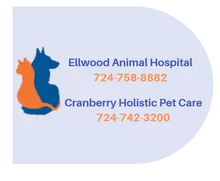Grain-free Feeding has been in the news over the past year, and has been linked to a type of cardiomyopathy or heart disease in dogs.
I have lost track of the number of times, in the past 3 months, that clients have questioned whether they should be feeding a grain-free diet to their pets. The top questions which come up include:
- Dr., I am confused about what to feed, because I heard pets need grains from another veterinarian. Do pets really need grains in their diets?
- I have been feeding a meat and vegetable based raw diet, but do I really need to add grains now that pets are dying from grain free foods?
- Do you think I need to switch my dog to a dry food which contains rice?
The discussion I share with pet owners includes knowledge of nutrition and common sense.
Labeling and marketing pet foods has followed consumer trends. When veterinarians make recommendations to owners about what to feed pets, consumers often look for the most economical ways to meet their pets’ needs.
When I began my practice, pets were developing food allergies due to the use of grains and corn in pet food. Because vets recognized that the food was playing a role, they started recommending foods with lamb and rice. Consumer demand for lamb and rice diets led to manufacturers marketing these ingredients and substituting grains and corn with rice.
Suddenly, pet owners developed the concept that rice was good for their pets, because vets were telling people to feed foods with rice, instead of grains. Dogs didn’t need rice, but the idea spread.
In recent years, vets have suggested grain-free feeding, so pet food manufacturers have eliminated traditional grains.
The problem with trends is that they are not based on science and the evolutionary diets which dogs thrived on.
A true grain-free diet consists of meat, bone, organ meat, entrails of killed/dead herbivores with partially digested grains and grasses, some scavenged veggies and fruits, and rotting stuff with lots of bacteria and enzymes to aid digestion and absorption of minerals.
Currently, many dry grain free manufacturers have substituted some of the meat protein with something called legumes. Technically they are not grains, so pet food companies can call foods “grain-free” that contain legumes (lentils, potatoes, chickpeas, peas, soybeans, and other beans).
Dogs and cats do not obtain the proper amount of amino acids from these foods, and pet food companies can use legumes to meet required protein content. Many experts feel this is causing a taurine nutrient deficiency.
My concern and opinion is that pet foods which are legume and potato-filled are high in a plant protective protein called lectin, which, according to many researchers, can cause inflammation in organs, including the hearts of humans.
If these food ingredients are producing high lectin content in a pet’s body, it is possible that heart disease is a result of too many lectins. To date, I have not read any research investigating this idea.
Regardless of whether pets can tolerate lectins, we know that animals would never select legumes over meat in their diets, and they likely lack the ability to utilize those proteins the way they absorb meat proteins.
I believe that feeding a real grain and legume-free diet should protect pets from the health problems we are seeing.
A raw or cooked diet with meat, bone, veggies, fruits, organs and fermentation products should eliminate lectins, legumes, grains and bring up the taurine content in the food.
Finally many researchers at universities are letting owners know that no one has the answers yet about the grain free problems, because they are just at the stage where people are correlating events.
Because 2 events occur, the first event is not always the cause of the second event. For example, if a person leaves bread on the table and flies appear on the bread, the bread did not cause or produce the flies. They are simply in the same place at the same time.
Carnivores fed diets which state they are grain-free have developed heart disease. No one knows if it because of the diet, as the animals have not been in a controlled study and were not tested before and after feeding their particular diets.
Additionally, large populations of pets being fed other diets have not been evaluated to see if those being fed grain-containing foods have the same rate of cardiomyopathy.
If your pet has been eating one of the diets mentioned in recent articles, schedule your pet’s health and heart exam, complete with cardiac enzyme testing Listening to the heart is not good a complete evaluation) and talk to your vet about supplements to promote health, including whole food vitamins, digestive enzymes and probiotics.
